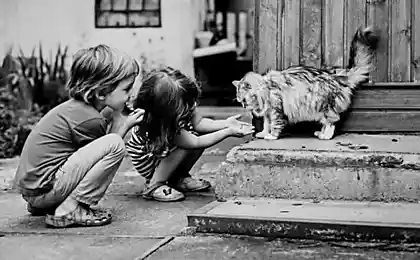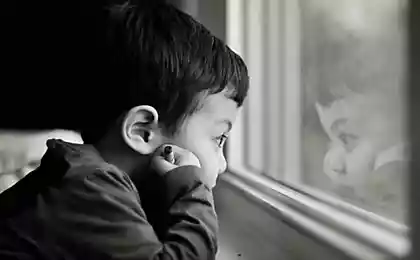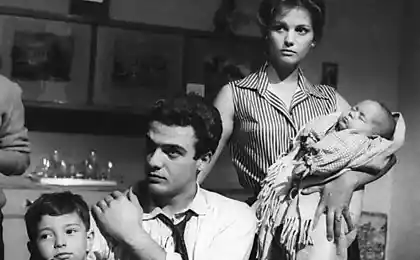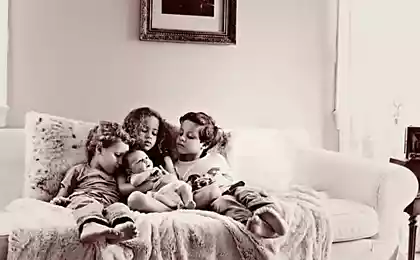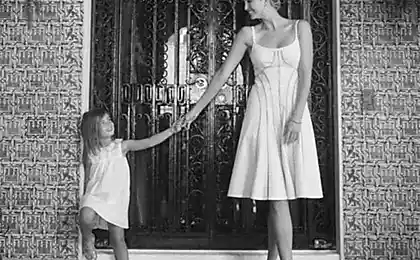457
3 IMPORTANT things to teach Your children
To lose.
An integral part of the self-esteem of the child and the parent, is the ability with a quiet dignity and understanding of the reasons to accept your loss.
Every parent wants his child was the best at something: the faster I went, the faster he spoke, the faster I started to go to pot all quickly learned to read.
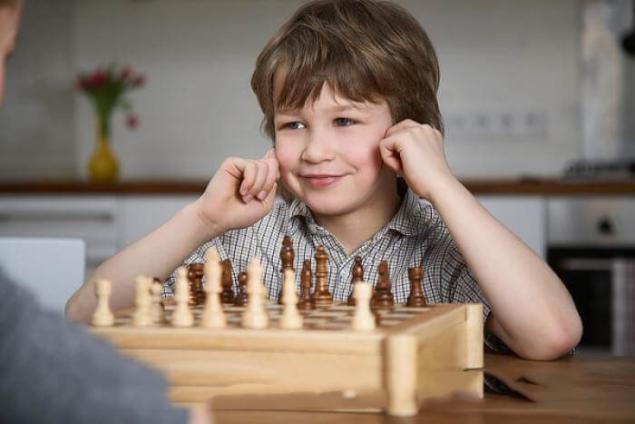
And this is only the beginning.
Then the child begin to impose a bunch of expectations that he is supposed to do in this life in order to amuse the ego and its own unreasonable expectations of the parent.
The child is forced to carry the burden of expectations of parents and the guilt of them, because it's not what you want to see. And then grows up with inadequate relationship to ourselves, the world and the people around him.
His self-esteem or underestimated, then the world is scary and people around you stronger and more beautiful.
Either too high, when he was raised by his "indomitable leader in all things" and "good for all". Such children very difficult to make a real world, with the possible situations of loss. He becomes a hostage of parent programs — "You have to win if you don't win, you're nobody!" or "How can you lose — you can do anything! Good for you for always and in everything".
How do you think I feel these children at the time of the loss?
Not difficult to guess, first go into apathy, guilt, depression, and not even trying to find ways to improve on what has led to the loss, and then to go back and try to win. The second will be blamed all around the world, it would be a tragedy worse than the first because the first atleat a week in depression, eat a few kilos of sweets and cakes will come out of it, and the second is more difficult, they just "killed" in the literal and figurative sense, because to accept that you are now no for a person with inadequate self-esteem painful.
The main reason for this behavior is the inability to take responsibility for what is happening in your life.
Speaking of praise: praise is necessary, but in moderation and according to merit.
When praise is constant, the baby is bathed in it for everything and always, whatever he did, he always does, the child does not even suggest that he may lose, and the realities of life will be for him more deeply than you would like.
For example, the child brings you the picture and you know he can do better, he obviously tried your best, there are two ways to praise:
Better to celebrate and support the good word: "I was sure you can do it", " I appreciate your tenacity," etc.
Concerts focus on the positive: "you Have so wonderful work to solve the examples, and with the task, I'm sure next time you'd step it up and do it."
Then the child will be with the full understanding and acceptance to take responsibility for something that did not happen because he will want to reach new levels and peaks, but a loss will just be another beacon is where you should push and what to fix for a long-awaited victory!

Take care of yourself.
Just want to say I'm not going to talk about what children need to grow in full selfish "me, me, me and it too me."
It will be a different story, unfortunately, is rare people do understand what taking care of yourself.
We are brought up thinking that you have to take care of others first. And like our grandparents, gave birth in the fields while taking care of state farm plan to raise wheat.
In total, we carry genetic memory, the attitude to yourself as to secondary person in our lives.
This syndrome of emotional burning out at mom's so common that if it was on TV as an epidemic, not just outshined swine flu, and would have surpassed even the plague.
We live in constant stress, and our children learn to live in it. We surround ourselves with stress and absolutely ceased to hear itself, and my body.
That's what really need to teach children is to learn to listen to yourself, your body's signals and time to help themselves care. Then there will be less screaming in the family, less stress, and more love and tenderness.
The fact is that when we cease to care about ourselves, we cease to fill ourselves with love, and it is so vitally necessary for normal existence.
Do you think that you're grafting in the world when you're exhausted inside?
Can a mother give unconditional love and acceptance, to look at the situation calmly when she is exhausted on the inside?
She so starved of love and care that is inside the conscious of an adult crying "exhausted" child.
We are in constant pursuit of ideals, money, recognition, power, strength and so on.
We forget that our status, our attitude is the power that helps to overcome a lot!
For moms it is especially important to be in love with yourself and learn to live so their children, then people with the desire to get sick when they want attention will be much less.
Teach children to listen to yourself and your body's signals:
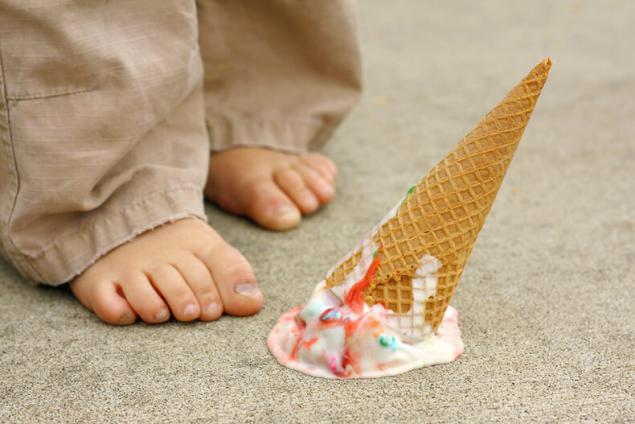
To make a mistake.
Yes, as strange as it may sound, but easy attitude to your mistakes, leads to understanding how to fix them and their causes. And then turns on and adequate accountability, and the desire to decide what you've done.
Agree, we absolutely can not be wrong.
Some include "Apathy" — I have never done anything, this is the way the people who flew in childhood, even for minor mistakes, and others reproached themselves for months for a minor mistake, and not finding, any way to fix his mistake (I refer to the latter, and it is an ordeal each time to digest the mistakes and look at them as growth opportunities).
It is important for children to realize that mistakes are an integral part of the learning process.
Teach children to understand that making mistakes is not to do "bad"!
Learn to correct mistakes instead of the torture itself, and the disclaimer for what you do!
Tell us about their mistakes, their experience, and you will help the child to see that mistakes aren't the end of the world and not something that should be hidden, in order not to fall.
Trust you child will only if:
Author: Irina Sergeevna Zatsepina
P. S. And remember, only by changing their consumption — together we change the world! ©
Join us in Facebook , Vkontakte, Odnoklassniki
Source: samopoznanie.ru/articles/chemu_stoit_uchit_detey/
An integral part of the self-esteem of the child and the parent, is the ability with a quiet dignity and understanding of the reasons to accept your loss.
Every parent wants his child was the best at something: the faster I went, the faster he spoke, the faster I started to go to pot all quickly learned to read.

And this is only the beginning.
Then the child begin to impose a bunch of expectations that he is supposed to do in this life in order to amuse the ego and its own unreasonable expectations of the parent.
The child is forced to carry the burden of expectations of parents and the guilt of them, because it's not what you want to see. And then grows up with inadequate relationship to ourselves, the world and the people around him.
His self-esteem or underestimated, then the world is scary and people around you stronger and more beautiful.
Either too high, when he was raised by his "indomitable leader in all things" and "good for all". Such children very difficult to make a real world, with the possible situations of loss. He becomes a hostage of parent programs — "You have to win if you don't win, you're nobody!" or "How can you lose — you can do anything! Good for you for always and in everything".
How do you think I feel these children at the time of the loss?
Not difficult to guess, first go into apathy, guilt, depression, and not even trying to find ways to improve on what has led to the loss, and then to go back and try to win. The second will be blamed all around the world, it would be a tragedy worse than the first because the first atleat a week in depression, eat a few kilos of sweets and cakes will come out of it, and the second is more difficult, they just "killed" in the literal and figurative sense, because to accept that you are now no for a person with inadequate self-esteem painful.
The main reason for this behavior is the inability to take responsibility for what is happening in your life.
Speaking of praise: praise is necessary, but in moderation and according to merit.
When praise is constant, the baby is bathed in it for everything and always, whatever he did, he always does, the child does not even suggest that he may lose, and the realities of life will be for him more deeply than you would like.
For example, the child brings you the picture and you know he can do better, he obviously tried your best, there are two ways to praise:
- The first — "Oh, how lovely, you do wonderful application, you're great." Here you give him to understand that everything you grow in this direction, nowhere to go, you have already achieved all that is possible.
- The second is the "Cute, chic pasted leaves, excellent cut here, and here the adhesive is almost invisible, and here you can do much better, I'm sure if you try, you never will!". You adequately assess its merits and gently indicate that he needs to fix to achieve even more in this case.
Better to celebrate and support the good word: "I was sure you can do it", " I appreciate your tenacity," etc.
Concerts focus on the positive: "you Have so wonderful work to solve the examples, and with the task, I'm sure next time you'd step it up and do it."
Then the child will be with the full understanding and acceptance to take responsibility for something that did not happen because he will want to reach new levels and peaks, but a loss will just be another beacon is where you should push and what to fix for a long-awaited victory!

Take care of yourself.
Just want to say I'm not going to talk about what children need to grow in full selfish "me, me, me and it too me."
It will be a different story, unfortunately, is rare people do understand what taking care of yourself.
We are brought up thinking that you have to take care of others first. And like our grandparents, gave birth in the fields while taking care of state farm plan to raise wheat.
In total, we carry genetic memory, the attitude to yourself as to secondary person in our lives.
This syndrome of emotional burning out at mom's so common that if it was on TV as an epidemic, not just outshined swine flu, and would have surpassed even the plague.
We live in constant stress, and our children learn to live in it. We surround ourselves with stress and absolutely ceased to hear itself, and my body.
That's what really need to teach children is to learn to listen to yourself, your body's signals and time to help themselves care. Then there will be less screaming in the family, less stress, and more love and tenderness.
The fact is that when we cease to care about ourselves, we cease to fill ourselves with love, and it is so vitally necessary for normal existence.
Do you think that you're grafting in the world when you're exhausted inside?
Can a mother give unconditional love and acceptance, to look at the situation calmly when she is exhausted on the inside?
She so starved of love and care that is inside the conscious of an adult crying "exhausted" child.
We are in constant pursuit of ideals, money, recognition, power, strength and so on.
We forget that our status, our attitude is the power that helps to overcome a lot!
For moms it is especially important to be in love with yourself and learn to live so their children, then people with the desire to get sick when they want attention will be much less.
Teach children to listen to yourself and your body's signals:
- Do not cram food — food can become such a child in the future-stress and the main source of pleasure.
- Let sometimes to get away from the clear mode of the day — give your child sometimes hear for yourself that he is tired or hungry, of course, to avoid falling asleep on the floor, the accumulated fatigue all the way!
- Let to learn yourself and your body — no need for screaming, if you saw a child trying to tear the wound crust, for example, or in front of the mirror considers itself the clock, grimacing at the same time, give him freedom to be alone as much as he will need!
- Allow and accept his desire to have the boundaries of personal space, the reluctance of touch — if the child puts boundaries in touching, hugging, kissing, have the power and the wisdom to accept them and not break!

To make a mistake.
Yes, as strange as it may sound, but easy attitude to your mistakes, leads to understanding how to fix them and their causes. And then turns on and adequate accountability, and the desire to decide what you've done.
Agree, we absolutely can not be wrong.
Some include "Apathy" — I have never done anything, this is the way the people who flew in childhood, even for minor mistakes, and others reproached themselves for months for a minor mistake, and not finding, any way to fix his mistake (I refer to the latter, and it is an ordeal each time to digest the mistakes and look at them as growth opportunities).
It is important for children to realize that mistakes are an integral part of the learning process.
Teach children to understand that making mistakes is not to do "bad"!
Learn to correct mistakes instead of the torture itself, and the disclaimer for what you do!
Tell us about their mistakes, their experience, and you will help the child to see that mistakes aren't the end of the world and not something that should be hidden, in order not to fall.
Trust you child will only if:
- It is certain that you take him for always and no matter what;
- He will see in you a man who also made a mistake and found the options, not the despot and the ideal, which is "never wrong."
- He will feel back support in any difficult situations for him not to be afraid of, even just to tell you that it happened.
Author: Irina Sergeevna Zatsepina
P. S. And remember, only by changing their consumption — together we change the world! ©
Join us in Facebook , Vkontakte, Odnoklassniki
Source: samopoznanie.ru/articles/chemu_stoit_uchit_detey/












